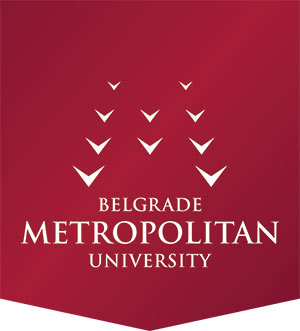Belgrade Metropolitan University assisted in preparation for the Law on Dual Study Models that was passed in 2019, as well as the necessary by-laws. It is now seeking companies that are interested in implementing a dual study model, in order for the first generation of future IT professionals to start their studies on 1st October this year
The EU-funded Erasmus+ project “DualEdu” has helped to gather experience on the dual study model in different countries. On the basis of this, our experts were able to propose and design models that best suit the conditions of study and work in Serbia, explains professor Dragan Domazet.
Belgrade Metropolitan University has been committed to dual education since its founding. How did you know 15 years ago that, in addition to theoretical learning, students also needed to have permanent work placement practise during their studies? How much did others fall into line behind you?
 – We started with the Faculty of Information Technology in 2005, knowing that IT was a young scientific discipline that’s changing rapidly and covers a broad field of application. We concluded that it was essential for us to work as closely as possible with IT firms, in order to quickly adapt to their needs, and that’s why we update our programmes every year by incorporating new technologies and new areas of application. Moreover, all of our programmes regularly comply with the recommendations of the American associations ACM / IEEE Computer Society, which represent the de facto international standards in computing. It’s because of this that our students don’t have a problem finding employment abroad.
– We started with the Faculty of Information Technology in 2005, knowing that IT was a young scientific discipline that’s changing rapidly and covers a broad field of application. We concluded that it was essential for us to work as closely as possible with IT firms, in order to quickly adapt to their needs, and that’s why we update our programmes every year by incorporating new technologies and new areas of application. Moreover, all of our programmes regularly comply with the recommendations of the American associations ACM / IEEE Computer Society, which represent the de facto international standards in computing. It’s because of this that our students don’t have a problem finding employment abroad.
As Minister of Science, Technology and Development in the Government of Serbia from 2001 to 2004, you personally advocated for the closest possible cooperation between universities and industry, with the aim of developing innovation and technoentrepreneurship at universities. Why did no one recognise the importance of your initiative at that time?
– A certain level of conformism exists with many professors. It is easier to teach the same thing for years and deal with theoretical research, rather than applied and developmental research when you are facing the harsh demands of the industry. People don’t like change, and they generally only change if the circumstances compel them to do so. That’s why I believe that competition is important and that’s why I advocate for the open concept of the university, which – at least in some disciplines – needs to compete on the market of higher education globally.
Healthy and stimulating competition is important in all fields of life and work, including education
Employers are the most competent to evaluate our quality, i.e. the quality of our graduates, and we need to develop future professionals together with them, by combining formal and non-formal education.
Belgrade Metropolitan University is a partner of the Erasmus+ project “Implementation of Dual Education in Higher Education of Serbia – DualEdu”. Could you tell us more about this project?
– In a way, I actually launched this project, while the Ministry of Education supported it and the Faculty of Mechanical Engineering accepted to be the coordinator. In the field of IT, after the second year of their studies, many students start working for IT firms or independently, as freelancers, so some of them break from their studies and usually never complete them.
This is not good for their careers, nor for their employers, nor for universities that are left with few students in their final years of study. In the dual study model, I found a “win-win-win” solution for students, IT firms and IT colleges. Students both study and work during the period of their studies. With this work during studies, they earn their investment intuition from their employer and the earnings secured during their studies. The employer gains the specialist they need, universities don’t lose students, and students receive graduate diplomas and employment at the firm that they worked for during their studies.